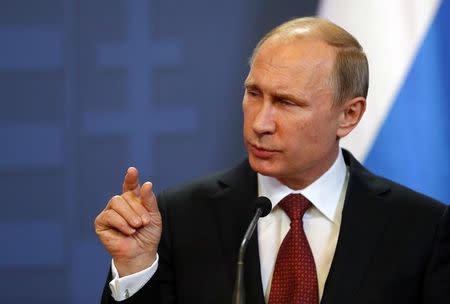Russia is re-drawing Europe's borders, worrying for Baltic states - EU's Dombrovskis

By John Geddie and Huw Jones LONDON (Reuters) - Valdis Dombrovskis, vice president of the European Commission, said on Thursday that Russia was redrawing the map of Europe by force and that a stronger NATO presence was needed on the alliance's borders. "Russia's aggression against Ukraine is very worrying for Baltic states," Dombrovskis, a former prime minister of Latvia, told an event organised in London. "It shows that Russia is looking to redraw Europe's 21st century borders by force, and it must be noted that Ukraine is not the first country to face Russia's aggression." Rebels backed by Russia agreed last week to observe a ceasefire in the fighting in the east, but promptly said it did not apply to a strategic town, and the continued fighting has undermined the deal, brokered by France and Germany. Echoing earlier comments from British Defence Secretary Michael Fallon, Dombrovskis said a stronger NATO presence was needed in the Baltic states of Estonia, Latvia and Lithuania, and was being built up. Russia's Foreign Ministry said Fallon's comment that Russia posed a "real and present danger" to Baltic countries went beyond "diplomatic ethics". Turning to Greece, ahead of crunch debt talks between Athens its euro zone creditors on Friday, Dombrovskis said the best way forward would be to extend the current bailout programme, but that some measures could be replaced with new fiscal targets. Greece formally requested a six-month extension to its euro zone loan agreement on Thursday, but EU paymaster Germany has already rejected the proposal. Speaking earlier at the same conference, Latvian Finance Minister Jānis Reirs said: "The ministers of finance have given the signal that cooperation with Greece can be based only on the existing financial assistance program with clear conditions. The EU is open for cooperation with the Greek government, but unilateral decisions will not be accepted." (Reporting by John Geddie and Huw Jones; Editing by Kevin Liffey)

